10 Best Herbal Capsules For Diarrhea

Herbal capsules for diarrhea are commonly used as natural remedies to alleviate gastrointestinal discomfort caused by digestive issues or infections.
These capsules often contain ingredients like peppermint, ginger, licorice root, and turmeric, which are known for their anti-inflammatory and digestive properties. They work by soothing the intestinal lining, reducing inflammation, and promoting healthy digestion. While generally safe for short-term use, they should not replace medical treatment for severe or persistent diarrhea.
It is important to consult a healthcare professional before using herbal capsules, especially for individuals with underlying health conditions or those taking other medications.
Table of Contents
- 1. Ginger (Zingiber officinale)
- 2. Turmeric (Curcuma longa)
- 3. Black pepper (Piper nigrum)
- 4. Ceylon cinnamon (Cinnamomum verum)
- 5. Fennel (Foeniculum vulgare)
- 6. Indian barberry (Berberis aristata)
- 7. Cumin (Cuminum cyminum)
- 8. Dog rose (Rosa canina)
- 9. Thistle (Silybum marianum)
- 10. Aloe vera (Aloe barbadensis)
1. Ginger (Zingiber officinale)

Zingiber officinale, commonly known as ginger, has been traditionally used for its digestive benefits, including the treatment of diarrhea.
Herbal capsules containing zingiber officinale are a convenient and concentrated form of this natural remedy, often used to soothe gastrointestinal discomfort. The active compounds in ginger, such as gingerols and shogaols, possess anti-inflammatory and antimicrobial properties that may help reduce the frequency and severity of diarrhea. These capsules are generally considered safe for most adults when taken as directed, though they may interact with certain medications.
They are often recommended as a complementary therapy alongside proper hydration and dietary adjustments for managing diarrhea.
2. Turmeric (Curcuma longa)

Curcuma longa, commonly known as turmeric, contains curcumin, a compound known for its anti-inflammatory and antimicrobial properties.
Herbal capsules made from Curcuma longa are often used to support digestive health and may help alleviate symptoms of diarrhea by reducing gut inflammation and combating harmful bacteria. These capsules are typically taken orally, and their effectiveness can be enhanced when combined with black pepper or a fat source to improve absorption. While generally safe, they should be used under the guidance of a healthcare professional, especially for individuals with pre-existing medical conditions or those taking other medications.
Overall, Curcuma longa herbal capsules may serve as a natural supplement to support digestive wellness during episodes of diarrhea.
3. Black pepper (Piper nigrum)
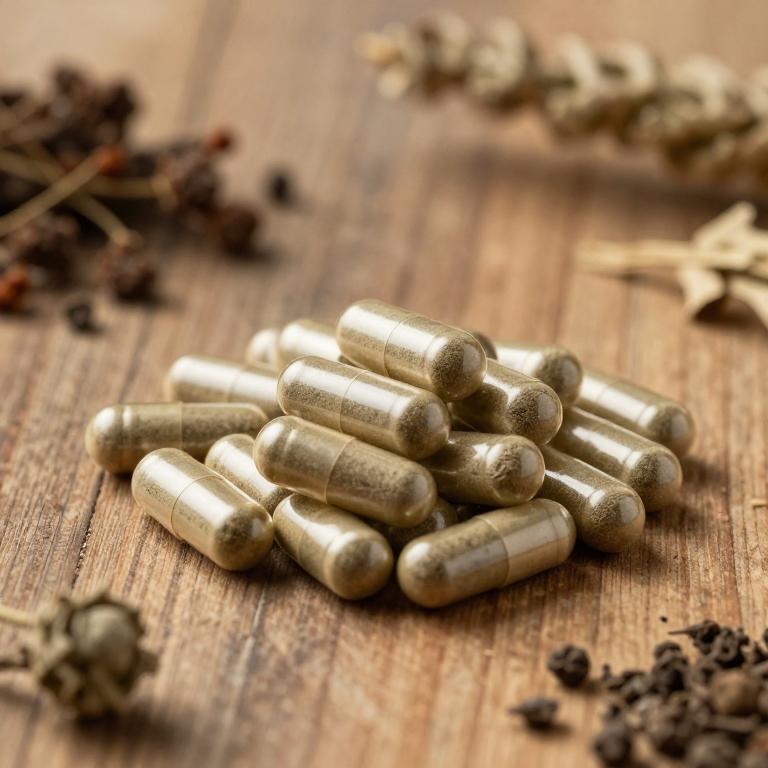
Piper nigrum, commonly known as black pepper, is often used in herbal medicine for its potential digestive benefits.
When formulated into herbal capsules, piper nigrum may support digestive health by stimulating the production of digestive enzymes and improving nutrient absorption. Some studies suggest that the active compound piperine in black pepper can enhance the effects of other medications and supplements, which may be beneficial for individuals with digestive issues. However, while it may aid in relieving mild digestive discomfort, it is not a substitute for medical treatment in cases of severe or persistent diarrhea.
As with any herbal supplement, it is advisable to consult a healthcare professional before use, especially for those with existing health conditions or taking other medications.
4. Ceylon cinnamon (Cinnamomum verum)

Cinnamomum verum, commonly known as true cinnamon, has been traditionally used for its medicinal properties, including its potential to alleviate symptoms of diarrhea.
The essential oils and compounds found in cinnamon, such as cinnamaldehyde and eugenol, possess antimicrobial and anti-inflammatory effects that may help reduce intestinal inflammation and combat harmful bacteria. When consumed in the form of herbal capsules, cinnamon can support digestive health by regulating bowel movements and soothing the gastrointestinal tract. However, it is important to consult a healthcare provider before using cinnamon capsules, especially for prolonged periods or in conjunction with other medications.
While some studies suggest its efficacy, more research is needed to fully understand its role in treating diarrhea.
5. Fennel (Foeniculum vulgare)
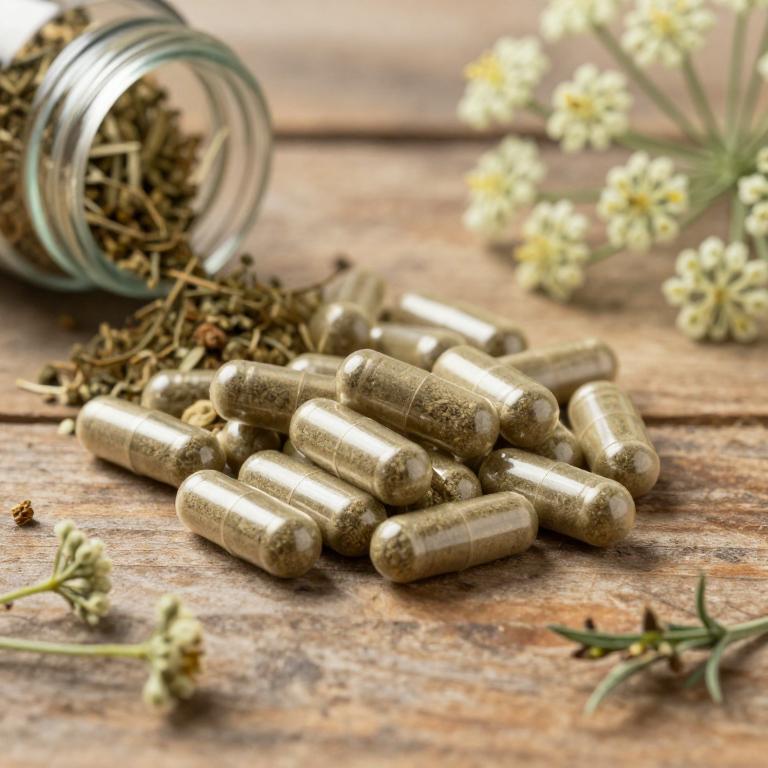
Foeniculum vulgare, commonly known as fennel, is often used in herbal capsules to help alleviate symptoms of diarrhea due to its carminative and antispasmodic properties.
The seeds of the fennel plant contain compounds like anethole, which can help soothe the digestive tract and reduce intestinal cramping. These herbal capsules are typically made from dried fennel seeds and are available in various forms, including standardized extracts. They are generally considered safe for short-term use but should be taken with caution, especially in individuals with known allergies or those taking other medications.
As with any herbal remedy, it is advisable to consult a healthcare professional before using fennel capsules for diarrhea to ensure proper dosage and safety.
6. Indian barberry (Berberis aristata)
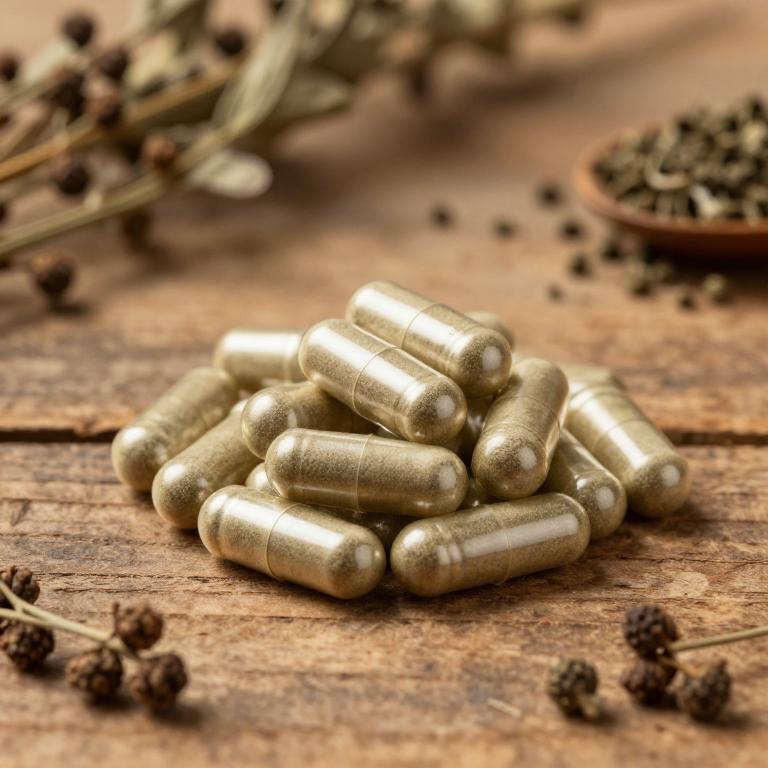
Berberis aristata, also known as Indian barberry, is a traditional herbal remedy that contains the active compound berberine, which has been shown to possess antimicrobial and anti-inflammatory properties.
Herbal capsules made from Berberis aristata are commonly used to treat diarrhea due to their ability to inhibit the growth of harmful gut bacteria such as Escherichia coli and Salmonella. These capsules work by reducing intestinal inflammation and regulating bowel movements, making them a natural alternative for managing acute and chronic digestive issues. However, it is important to consult a healthcare professional before using Berberis aristata, as it may interact with certain medications or be unsuitable for individuals with specific health conditions.
Overall, Berberis aristata herbal capsules offer a promising complementary approach to managing diarrhea, though their use should be guided by proper medical advice.
7. Cumin (Cuminum cyminum)
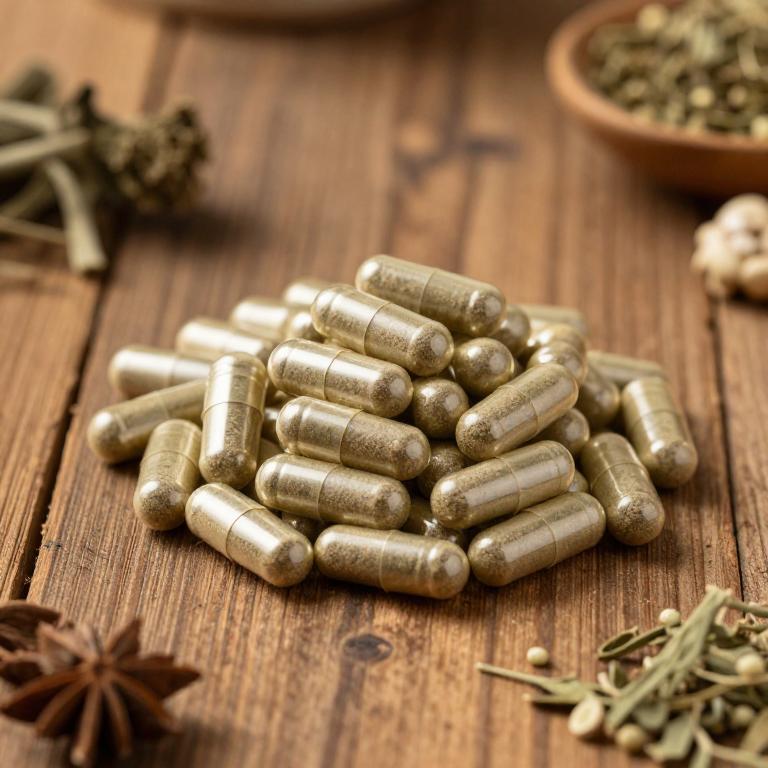
Cuminum cyminum, commonly known as cumin, has been traditionally used in herbal medicine for its digestive benefits, including the treatment of diarrhea.
The essential oils in cumin seeds, such as limonene and cineole, possess antimicrobial and anti-inflammatory properties that may help reduce intestinal inflammation and combat harmful bacteria. Cumin herbal capsules are often formulated to support gut health and regulate bowel movements, making them a popular natural remedy for mild to moderate cases of diarrhea. These capsules are typically safe for most adults when taken as directed, though they may interact with certain medications or cause side effects in sensitive individuals.
As with any herbal supplement, it is advisable to consult a healthcare professional before use, especially for prolonged or severe symptoms.
8. Dog rose (Rosa canina)
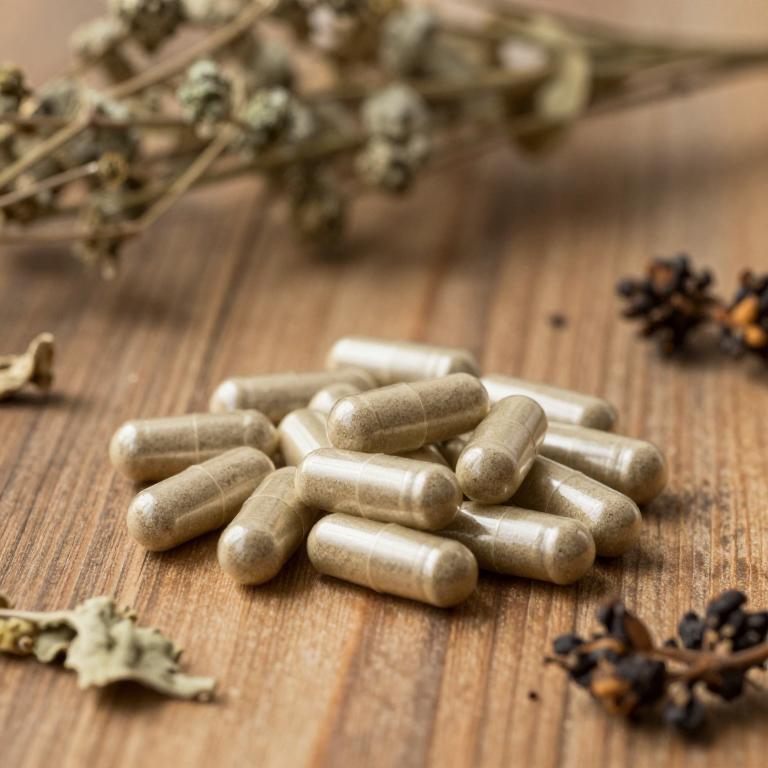
Rosa canina, also known as dog rose, is a traditional herbal remedy that has been used for centuries to support digestive health.
Rosa canina herbal capsules contain the dried fruit of the Rosa canina plant, which is rich in vitamins, minerals, and bioactive compounds. These capsules are often used to help alleviate symptoms of diarrhea by promoting the healing of the gastrointestinal tract and reducing inflammation. The anti-inflammatory and astringent properties of Rosa canina may help to firm stools and ease digestive discomfort.
As a natural supplement, Rosa canina is generally considered safe for most people, though it is advisable to consult with a healthcare professional before use, especially for those with chronic digestive conditions.
9. Thistle (Silybum marianum)

Silybum marianum, also known as milk thistle, is a herbal supplement commonly used for its potential liver-protective properties.
While it is primarily studied for its benefits in liver health, some preliminary research suggests it may have anti-inflammatory and digestive benefits that could support gastrointestinal health. However, there is limited clinical evidence specifically linking silybum marianum herbal capsules to the treatment of diarrhea. Its active compounds, such as silymarin, may help reduce gut inflammation and improve digestion, which could indirectly support relief from diarrhea.
Despite these potential benefits, it is important to consult a healthcare provider before using silybum marianum for digestive issues, as it may interact with certain medications or conditions.
10. Aloe vera (Aloe barbadensis)
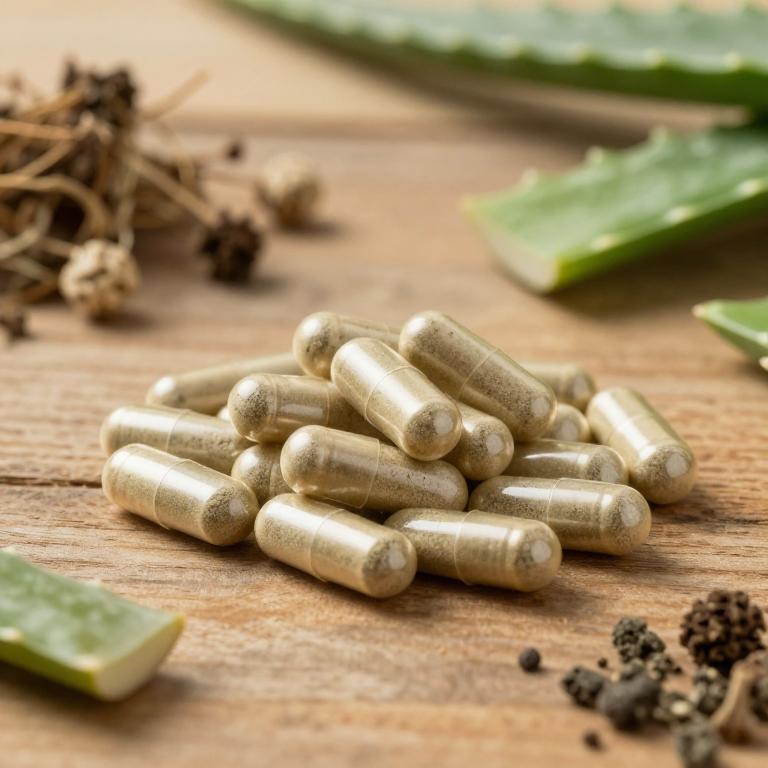
Aloe barbadensis, commonly known as aloe vera, is often used in herbal capsules to support digestive health.
These capsules contain the gel-like substance from the aloe plant, which is believed to have soothing and anti-inflammatory properties. Some studies suggest that aloe vera may help alleviate symptoms of diarrhea by reducing intestinal inflammation and promoting the healing of the gut lining. However, it is important to note that the effectiveness of aloe vera for diarrhea can vary, and it should be used with caution, especially in children or individuals with certain medical conditions.
As with any herbal supplement, it is advisable to consult a healthcare provider before use to ensure safety and appropriateness for individual health needs.